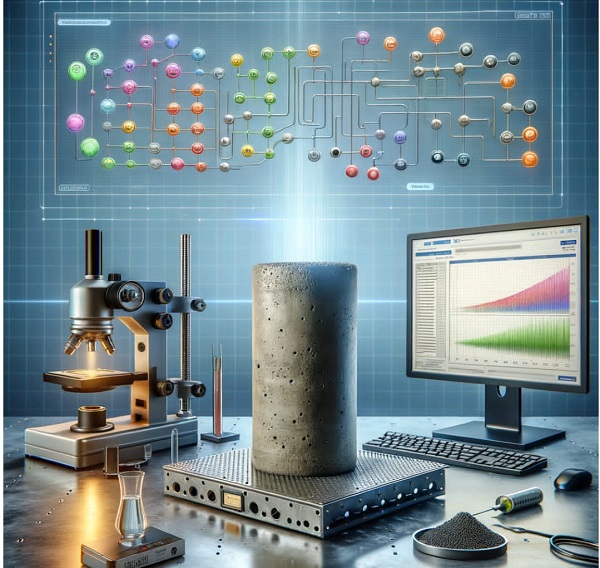Two Nigerian researchers, Ridwan Taiwo and Adesola Adegoke, have made significant strides in construction engineering with their groundbreaking research on predicting concrete strength using artificial intelligence.
Their recently published work in the prestigious journal “Construction and Building Materials” introduces an innovative approach to predicting the compressive strength of high-performance concrete (HPC), a crucial material in modern construction.
Taiwo, affiliated with
Hong Kong Polytechnic University
and ETH Zurich, along with Adegoke from Arizona State University, developed a sophisticated machine learning system that outperforms existing methods.
“Taiwo said: “Technology can significantly reduce construction costs and improve safety by accurately predicting concrete strength before testing.”
The researchers have also made their prediction tool freely available online, allowing construction professionals worldwide to benefit from their work.
The significance of their research extends far beyond academic circles, offering multiple benefits across environmental, economic, safety, and developmental domains.
Their prediction model achieves over 94% accuracy, a remarkable improvement over previous methods, representing a significant leap in construction technology.
In terms of environmental impact, this innovation could substantially reduce the construction industry’s carbon footprint.
Traditional concrete testing requires multiple samples to be created and tested, often leading to waste and unnecessary material production.
Through the accurate prediction of concrete strength beforehand, construction teams can optimize their mixture designs, reducing waste and the need for repeated testing.
This efficiency could potentially save millions of tons of cement production annually, significantly lowering CO2 emissions, as cement production accounts for about 8% of global carbon emissions.
From an economic perspective, the technology offers substantial cost savings. Construction companies typically spend considerable resources on concrete testing, including material costs, labor, and time delays waiting for test results.
The researchers’ prediction model could reduce these costs by more than 50%, according to industry estimates. For large construction projects, this could translate to savings of millions of dollars.
“Our goal was to make this technology accessible to engineers and construction professionals everywhere,” says Adegoke.\xa0
Their web-based application allows users to input concrete mixture properties and receive instant strength predictions, potentially saving considerable time and resources in construction projects.
Their work has received recognition for its practical applications and potential impact on global construction practices.
Both established researchers continue to push boundaries in their field, exemplifying the prominence of Nigerian intellect in global academia and technology.
Taiwo Ridwan, whose work spans prestigious institutions like Hong Kong Polytechnic University and ETH Zurich, and Adegoke Adesola, conducting groundbreaking research at Arizona State University’s Center for Bio-Mediated and Bio-Inspired Geotechnics, represent a new generation of Nigerian academics making significant contributions to global technological advancement.
Their success is particularly noteworthy as it challenges traditional narratives about technological innovation. Through the development of cutting-edge solutions that combine artificial intelligence with civil and construction engineering, they demonstrate that African researchers can lead in advanced technology development.
Their work has garnered attention from leading construction companies and research institutions worldwide, establishing new pathways for collaboration between Nigerian academics and global industry lead.
Provided by SyndiGate Media Inc. (
Syndigate.info
).







